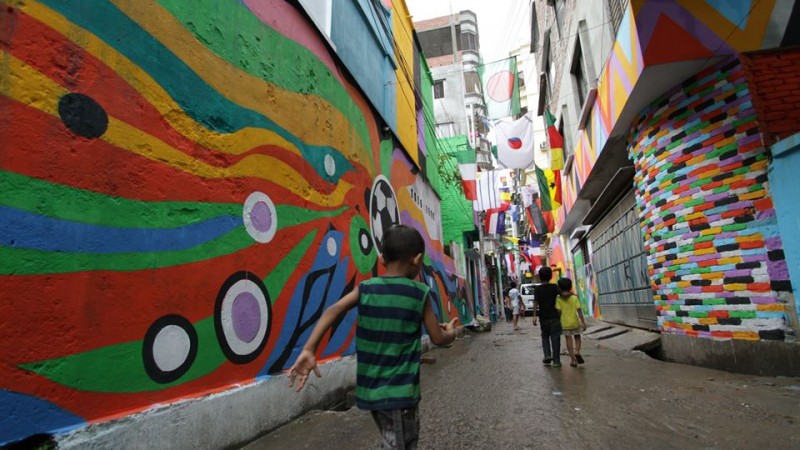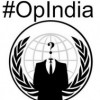This article by Faizul Khan Tanim was published in the Independent's Weekend Magazine June 22' 2012.
Faizul Khan Tanim writes on this ‘citizen journalism’ tool which erupted as a worldwide phenomenon and has impacted Bangladesh significantly
If you are still using the Microsoft Word 2003 version, the term blogging is not in its dictionary. However, this one word has become a global phenomenon…be it citizen journalism, individual reviews or photo story.
One may call it a modern day digital diary of events and on the other hand, it can fetch you, starting from restaurant reviews up to blogs by genre like corporate, politics and more. The audiences comprise of any one and everyone with internet access and very importantly, blogs has become very interactive, allowing visitors to leave comments.
Blogging is a form of social networking and these blog posts or entries are typically displayed in reverse chronological order, from the most recent post to the old.
It is believed that the term "blog" was not coined until the late 1990s. A tool Open Diary was launched in October 1998, soon growing to thousands of online diaries. Open Diary involving reader comment, becoming the first blog community where readers could add comments to other writers' blog entries.
In 2004, the role of blogs became increasingly mainstream, as political consultants, news services and candidates began using them as tools for outreach and opinion forming. Even politicians not actively campaigning, such as the UK's Labour Party's MP Tom Watson, began to blog to bond with constituents.
Today, blogging has evolved to be one-liners expressing absolutely what one wants to convey. Thanks to the rise of Facebook status updates, Twitter and other 'micro-blogging' systems which are helping dissemination of information into societal new streams.
And thanks to technology, blogs now cater to netizens in their own language. In Bangladesh, SomewhereinDhaka launched the first tool around the end of 2005 the option of blogging in Bangla and a new revolution erupted.
This writer spoke to two exciting and first generation bloggers of the country – Maqsoodul Haque with The Bangladesh Poet of Impropriety and Rezwan establishing his blog The Third World View. These have educated and inspired us to establish freedom of speech to the fullest.
Since it is unknown when blogging started in Bangladesh, but we can get a rough idea from both Haque and Rezwan who started in 2003. Haque said, “When I started around 2003 there were very few English language Bloggers. The group was so small, that the first Bangladesh Bloggers get-together was held in my apartment in Niketon sometime in 2005. We were no more that fifteen very excited men and women sharing a vision and importantly cherishing the freedom of expressions that this new technology brought to us. In Bengali, the first real breakthrough came with Somewherein.com Blog called Awaz in 2005-06. The rest is history”.
On the aspect of blogging as citizen journalism, Rezwan thinks and said: If a blogger acts or reports as a citizen journalist, then yes. But not all blogging is citizen journalism - there can be literary blog, photoblog, journals and more.
On the other hand, Haque think, “In a round about way - maybe. I would call it a journalist’s journal. Most journalist actually read Blogs to get an alternative take on any issue, before they file reports. I have written hundreds of Bogs entries that weren’t considered by any mainstream publication. Say for instance when a suicide and serial bombing spate hit Bangladesh in 2005-6, I was probably the only Blogger that didn’t believe that this was the work on an organized terrorist network and wrote passionately about it. I was therefore pleasantly surprised to receive a call from BBC London – asking me to share my thoughts for a few minutes in a radio talk show on terrorism. Later, I found my strongly held views being quoted in an academic journal on suicide bombers. And all the while I was under the naïve impression that I didn’t have more than a dozen people reading my Blog. The experience prompted me to install a visitation counter and I was shocked to see who and how many were actually snooping on me. Sent a chill down my spine!”
“Blogging defies traditional journalism in the sense that it seeks more opinion than one, as also voices in the ‘wilderness’ (like myself) who may have a thing or two to say about issues, but simply do not have the space. Journalism is a somewhat cliché form of sharing information, sometimes very boxed-in, with very stifling word limits. Blogging on the contrary has an expanse and the whole world is there waiting for you to unleash your idea, at your time and your terms. It doesn’t have to be the 6 a.m. newspaper or the 8 p.m. TV news Bulletin; you decide what time is ripe for what goes out. Blogging is what created the phenomenon called ‘public intellectuals’ in the first place”, Haque added.
Many believe that news media in Bangladesh belongs to certain sectors of our community and often truth is not published since it will harm the vested interest groups. Blogging however is beyond any of these problems.
And these particular phenomenons actually catapulted the use of blogs in a whole new level. When a Dhaka based journalist Syed Tashfin Chowdhury lost his eight month old daughter to medical malpractices by doctors from a renowned hospital in Gulshan-2, many people asked him to write reports in newspapers. He refused because many of the newspapers would not have published the actual news as the hospital authorities would have bribed or managed the top brasses of the media houses, an occurrence very common in Bangladesh. Instead, a full-length report style blog was published online on Facebook explaining what happened. Within moments, this report spread like wildfire and irrespective of parents who lost their children, empathetic citizens got involved and were inspired to blog and open a page on Facebook to identify doctors who does malpractices - Blacklist Doctors: Share your complains against doctors.
Today, many people believe that there are negative aspects of blogging as well. Certain blogs can portray harmful aspects and cater either negative points or help vested interest groups publish their wrong information. How can we tackle such situations?
To this, Rezwan said: Publishing libel or harmful content is not citizen journalism so it would be wrong to blame citizen journalism for negative things. Vested groups can preach wrong information in many ways - we see people spreading venoms against even the Prime Minister in rallies and public meetings. Do we bother those or do anything? The good thing about information on internet is you can ignore what is not relevant to you. If anyone feels they are personally attacked they can seek remedy as per local law. We have defamation and libel acts in place. No separate cyber law or anything is required.
Haque pointed out a few interesting facts as well: Any technological innovation brings with it its own share of positives and negatives. There are thousands of vested interest and hate groups out there, but my experience tells me these are no more than people seeking undue attention.
The best thing to do is just avoid them. A ‘cyber cold shoulder’ is the best deterrent to tackle the situation. Blogging sites also have their own control mechanism. We all have rights to report any site with objectionable content and likewise anyone can report ours. If anybody goes way out of line – well too bad, you can wake up one morning to find your Blog gone..all your ‘hard work’ consigned to a cyber trashcan !
Due to these situations, mostly those affected, are shouting and demanding monitoring organisations to scrutinize and enforce law on blog contents. Our bloggers do not agree with this third-party involvement.
Haque believes, “I am opposed to any form of monitoring or censorship. That said I would like to sound out a caveat here. Like it or not, the Internet, Blogs, Facebook etc are not owned by Bangladesh. The information era erupted once the CIA realized that more than remaining a spooky, snoopy slow to react behemoth; it makes good sense for people to have their own say. Blogs for all practical purpose is used as a tool for collecting HUMINT – human intelligence and they get it FREE! It cost more for the CIA to have an asset or agent on ground that may or may not come up with the sort of thing they want to read. I sincerely think any Blogger who is patriotic, knows all too well how to work, dodge and weave under the prevailing and existing parameters and do so with responsibility under expected codes of civil cyber conduct. The importance of Bangladesh’s National Security can hardly be over emphasized”.
The power of blogging has reached newer levels…be it freedom of speech or political movements, this phenomenon has become SENSATIONAL and a lot of think tanks are raising awareness of possible revolutions or upheavals in the country created by blog posts. But how much of it is true remains a question.
To this question, Rezwan said, “Social revolution is initiated by people, not blogs. In Arab revolution people went out on the streets to protest - they used social media - so we could see their protests closely. It may have had an augmented effect. But it was the people who started this. Unless the people rise - no tool alone can bring revolution”.
And Haque, with his intense sense of humour, knowledge on our socio-politics backed by strong patriotism, expressed what the control freaks deny to follow:
Can social media tools like blogs bring about social revolution in this country?
If anybody in her/his wildest dreams think that Blogs/Facebook or Twitter will bring about a Bangladesh version of the Arab Spring is living in fool’s paradise.
Facebook for instance is a tool for hobbyist who are either the elite or ‘elitist wannabes’ happy with clicking a million LIKE on every cause, hyperbolic political propaganda or well meaning words of dissent. In other words Facebook is a thoroughly viral Fakebook – with fake IDs, fake profile pictures and fake ‘cyber activists’. It’s very easy for thousands of fakes LIKING say a call for a protest demonstration in Matijheel, but in reality less than a dozen from Facebook will show up physically to face the police baton/ teargas or even the standing for hours in the searing sun.
The words ‘revolution’ therefore sounds very ‘revolutionary’ from the comfort of bed room laptops or cell phones. But real revolution in Bangladesh has traditionally come about in the participation of the marginalized from the grassroots who are too poverty stricken and illiterate to know that Facebook or Blogs exist! For the majority – Bamboos as opposed to Facebook or Blog is a conceivable weapon that will usher the next revolution in Bangladesh.
One may call it a modern day digital diary of events and on the other hand, it can fetch you, starting from restaurant reviews up to blogs by genre like corporate, politics and more. The audiences comprise of any one and everyone with internet access and very importantly, blogs has become very interactive, allowing visitors to leave comments.
Blogging is a form of social networking and these blog posts or entries are typically displayed in reverse chronological order, from the most recent post to the old.
It is believed that the term "blog" was not coined until the late 1990s. A tool Open Diary was launched in October 1998, soon growing to thousands of online diaries. Open Diary involving reader comment, becoming the first blog community where readers could add comments to other writers' blog entries.
In 2004, the role of blogs became increasingly mainstream, as political consultants, news services and candidates began using them as tools for outreach and opinion forming. Even politicians not actively campaigning, such as the UK's Labour Party's MP Tom Watson, began to blog to bond with constituents.
Today, blogging has evolved to be one-liners expressing absolutely what one wants to convey. Thanks to the rise of Facebook status updates, Twitter and other 'micro-blogging' systems which are helping dissemination of information into societal new streams.
And thanks to technology, blogs now cater to netizens in their own language. In Bangladesh, SomewhereinDhaka launched the first tool around the end of 2005 the option of blogging in Bangla and a new revolution erupted.
This writer spoke to two exciting and first generation bloggers of the country – Maqsoodul Haque with The Bangladesh Poet of Impropriety and Rezwan establishing his blog The Third World View. These have educated and inspired us to establish freedom of speech to the fullest.
Since it is unknown when blogging started in Bangladesh, but we can get a rough idea from both Haque and Rezwan who started in 2003. Haque said, “When I started around 2003 there were very few English language Bloggers. The group was so small, that the first Bangladesh Bloggers get-together was held in my apartment in Niketon sometime in 2005. We were no more that fifteen very excited men and women sharing a vision and importantly cherishing the freedom of expressions that this new technology brought to us. In Bengali, the first real breakthrough came with Somewherein.com Blog called Awaz in 2005-06. The rest is history”.
On the aspect of blogging as citizen journalism, Rezwan thinks and said: If a blogger acts or reports as a citizen journalist, then yes. But not all blogging is citizen journalism - there can be literary blog, photoblog, journals and more.
On the other hand, Haque think, “In a round about way - maybe. I would call it a journalist’s journal. Most journalist actually read Blogs to get an alternative take on any issue, before they file reports. I have written hundreds of Bogs entries that weren’t considered by any mainstream publication. Say for instance when a suicide and serial bombing spate hit Bangladesh in 2005-6, I was probably the only Blogger that didn’t believe that this was the work on an organized terrorist network and wrote passionately about it. I was therefore pleasantly surprised to receive a call from BBC London – asking me to share my thoughts for a few minutes in a radio talk show on terrorism. Later, I found my strongly held views being quoted in an academic journal on suicide bombers. And all the while I was under the naïve impression that I didn’t have more than a dozen people reading my Blog. The experience prompted me to install a visitation counter and I was shocked to see who and how many were actually snooping on me. Sent a chill down my spine!”
“Blogging defies traditional journalism in the sense that it seeks more opinion than one, as also voices in the ‘wilderness’ (like myself) who may have a thing or two to say about issues, but simply do not have the space. Journalism is a somewhat cliché form of sharing information, sometimes very boxed-in, with very stifling word limits. Blogging on the contrary has an expanse and the whole world is there waiting for you to unleash your idea, at your time and your terms. It doesn’t have to be the 6 a.m. newspaper or the 8 p.m. TV news Bulletin; you decide what time is ripe for what goes out. Blogging is what created the phenomenon called ‘public intellectuals’ in the first place”, Haque added.
Many believe that news media in Bangladesh belongs to certain sectors of our community and often truth is not published since it will harm the vested interest groups. Blogging however is beyond any of these problems.
And these particular phenomenons actually catapulted the use of blogs in a whole new level. When a Dhaka based journalist Syed Tashfin Chowdhury lost his eight month old daughter to medical malpractices by doctors from a renowned hospital in Gulshan-2, many people asked him to write reports in newspapers. He refused because many of the newspapers would not have published the actual news as the hospital authorities would have bribed or managed the top brasses of the media houses, an occurrence very common in Bangladesh. Instead, a full-length report style blog was published online on Facebook explaining what happened. Within moments, this report spread like wildfire and irrespective of parents who lost their children, empathetic citizens got involved and were inspired to blog and open a page on Facebook to identify doctors who does malpractices - Blacklist Doctors: Share your complains against doctors.
Today, many people believe that there are negative aspects of blogging as well. Certain blogs can portray harmful aspects and cater either negative points or help vested interest groups publish their wrong information. How can we tackle such situations?
To this, Rezwan said: Publishing libel or harmful content is not citizen journalism so it would be wrong to blame citizen journalism for negative things. Vested groups can preach wrong information in many ways - we see people spreading venoms against even the Prime Minister in rallies and public meetings. Do we bother those or do anything? The good thing about information on internet is you can ignore what is not relevant to you. If anyone feels they are personally attacked they can seek remedy as per local law. We have defamation and libel acts in place. No separate cyber law or anything is required.
Haque pointed out a few interesting facts as well: Any technological innovation brings with it its own share of positives and negatives. There are thousands of vested interest and hate groups out there, but my experience tells me these are no more than people seeking undue attention.
The best thing to do is just avoid them. A ‘cyber cold shoulder’ is the best deterrent to tackle the situation. Blogging sites also have their own control mechanism. We all have rights to report any site with objectionable content and likewise anyone can report ours. If anybody goes way out of line – well too bad, you can wake up one morning to find your Blog gone..all your ‘hard work’ consigned to a cyber trashcan !
Due to these situations, mostly those affected, are shouting and demanding monitoring organisations to scrutinize and enforce law on blog contents. Our bloggers do not agree with this third-party involvement.
Haque believes, “I am opposed to any form of monitoring or censorship. That said I would like to sound out a caveat here. Like it or not, the Internet, Blogs, Facebook etc are not owned by Bangladesh. The information era erupted once the CIA realized that more than remaining a spooky, snoopy slow to react behemoth; it makes good sense for people to have their own say. Blogs for all practical purpose is used as a tool for collecting HUMINT – human intelligence and they get it FREE! It cost more for the CIA to have an asset or agent on ground that may or may not come up with the sort of thing they want to read. I sincerely think any Blogger who is patriotic, knows all too well how to work, dodge and weave under the prevailing and existing parameters and do so with responsibility under expected codes of civil cyber conduct. The importance of Bangladesh’s National Security can hardly be over emphasized”.
The power of blogging has reached newer levels…be it freedom of speech or political movements, this phenomenon has become SENSATIONAL and a lot of think tanks are raising awareness of possible revolutions or upheavals in the country created by blog posts. But how much of it is true remains a question.
To this question, Rezwan said, “Social revolution is initiated by people, not blogs. In Arab revolution people went out on the streets to protest - they used social media - so we could see their protests closely. It may have had an augmented effect. But it was the people who started this. Unless the people rise - no tool alone can bring revolution”.
And Haque, with his intense sense of humour, knowledge on our socio-politics backed by strong patriotism, expressed what the control freaks deny to follow:
Can social media tools like blogs bring about social revolution in this country?
If anybody in her/his wildest dreams think that Blogs/Facebook or Twitter will bring about a Bangladesh version of the Arab Spring is living in fool’s paradise.
Facebook for instance is a tool for hobbyist who are either the elite or ‘elitist wannabes’ happy with clicking a million LIKE on every cause, hyperbolic political propaganda or well meaning words of dissent. In other words Facebook is a thoroughly viral Fakebook – with fake IDs, fake profile pictures and fake ‘cyber activists’. It’s very easy for thousands of fakes LIKING say a call for a protest demonstration in Matijheel, but in reality less than a dozen from Facebook will show up physically to face the police baton/ teargas or even the standing for hours in the searing sun.
The words ‘revolution’ therefore sounds very ‘revolutionary’ from the comfort of bed room laptops or cell phones. But real revolution in Bangladesh has traditionally come about in the participation of the marginalized from the grassroots who are too poverty stricken and illiterate to know that Facebook or Blogs exist! For the majority – Bamboos as opposed to Facebook or Blog is a conceivable weapon that will usher the next revolution in Bangladesh.




























 Today a number of Indian Internet activists listened to the call of the Anonymous operations and
Today a number of Indian Internet activists listened to the call of the Anonymous operations and 






